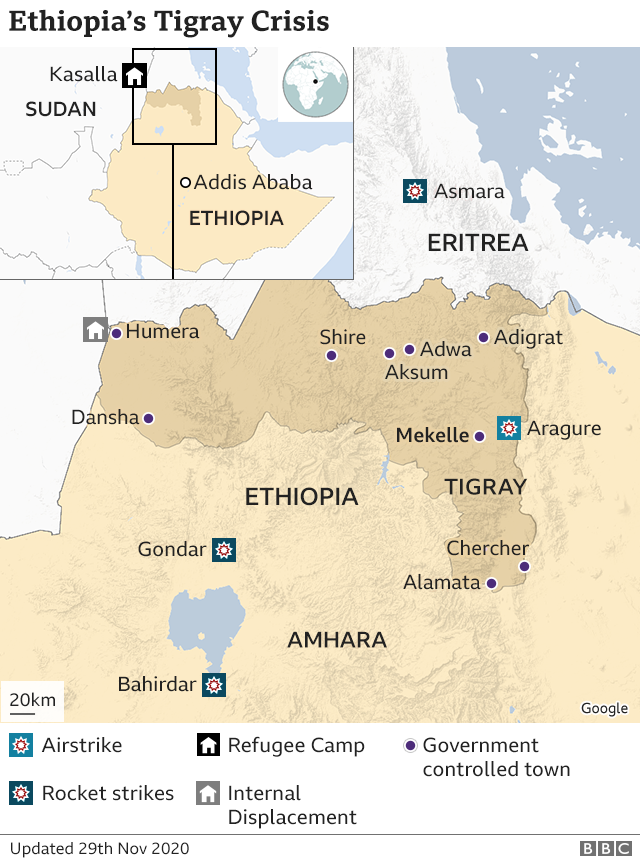Fighting in Ethiopia’s Tigray region has been going on for a month, with the UN now calling for human rights to be respected. But just a year ago Ethiopian PM Abiy Ahmed won a Nobel Peace Prize. So how did we get here? THREAD 1/8 https://www.bbc.co.uk/sounds/play/p090gy9m
https://www.bbc.co.uk/sounds/play/p090gy9m
 https://www.bbc.co.uk/sounds/play/p090gy9m
https://www.bbc.co.uk/sounds/play/p090gy9m
2/8 There’s a communications blackout in Tigray and it’s difficult to verify information from there, but we managed to speak to a doctor who says his hospital was shelled by government forces last month, forcing them to flee with injured civilians https://www.bbc.co.uk/sounds/play/p090pntt
3/8 The Ethiopian government says it is not targeting civilians in Tigray. Attorney General Gedion Timothewos says the government has been unwillingly drawn into conflict and they’re taking “every precaution possible to ensure that civilians are protected”
4/8 Who are the TPLF group that the Ethiopian government is fighting? Analyst @AdamAbebe explains how Tigray’s dominant political party had influenced Ethiopia for more than 25 years https://www.bbc.co.uk/sounds/play/p090gz2v
5/8 The UN says more than 45,000 people have fled to Sudan. If the conflict carries on, there will be serious consequences for Ethiopia and the surrounding area as @JamPrescod describes
6/8 Ethiopia’s Tigray crisis threatens to reverse economic gains of the last 25 years and destabilise the whole region, as @AhmedSolHoA explains
https://www.bbc.co.uk/sounds/play/p090j6hw
https://www.bbc.co.uk/sounds/play/p090j6hw
7/8 Other countries may get drawn in. There are reports of drones from the UAE supporting attacks on Tigrayan forces https://www.bbc.co.uk/sounds/play/p090nhvv
8/8 Many Tigrayans living outside Ethiopia have little information about their loved-ones. Some have asked us not to use their names https://www.bbc.co.uk/sounds/play/p090tr4g

 Read on Twitter
Read on Twitter



